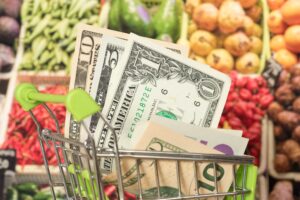
In today’s economy, saving money at the grocery store is more crucial than ever. With prices fluctuating and budgets tightening, smart shopping has become an essential skill. One effective way to cut costs is by avoiding certain high-priced items that can sneakily increase your grocery bill. Here are 12 foods you might skip on your next shopping trip to keep more money in your pocket.
1. Pre-Cut Fruits and Vegetables
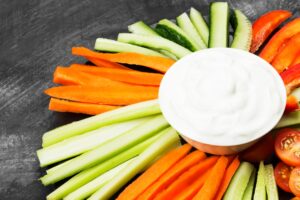
While pre-cut fruits and vegetables offer convenience, they come at a premium. These items are often marked up significantly compared to their whole counterparts. By investing a few extra minutes in chopping and preparing these foods at home, you can save a considerable amount each month. Plus, whole produce stays fresh longer, providing better value for your money and less food waste.
2. Gourmet Cheeses
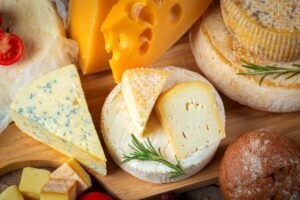
Cheese lovers might be tempted by the array of gourmet cheeses available at specialty counters, but these selections can be pricey. Opt for standard varieties or purchase larger blocks that you can slice or shred yourself to save money. Many store brands offer quality cheese at a fraction of the cost of gourmet labels without significantly sacrificing taste or quality.
3. Spices and Seasonings
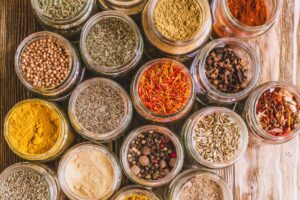
Spice racks at grocery stores are filled with small, expensive bottles. However, buying spices in bulk or from discount stores can lead to significant savings. You often pay more for brand-name packaging than for the spices themselves. Consider refilling your spice jars at bulk food stores where spices cost less than half as much per ounce.
4. Bottled Water

Purchasing bottled water is not only costly over time, but it also contributes to environmental waste. Investing in a reusable water bottle and a good-quality water filter can drastically reduce your grocery costs. Tap water in many areas is perfectly safe and can be enhanced with filtering, making this a smart financial and environmental move.
5. Pre-Packaged Meals and Snacks
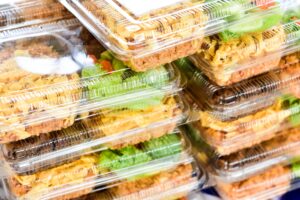
Convenience comes at a cost when it comes to pre-packaged meals and snacks. Not only are these items more expensive per serving, but they also often contain unhealthy preservatives and additives. By preparing homemade meals and snacks, you not only save money but also control the ingredients, tailoring your diet to be healthier.
6. Name Brand Cereals

Cereals can be expensive grocery store items, especially name-brand boxes. Store brands often contain the same ingredients and taste as their branded counterparts but at a lower price. Look for generic versions or buy cereals in bulk to save money without compromising breakfast quality.
7. Coffee Pods

Single-serve coffee pods are convenient but costly. If coffee is a daily necessity, consider switching to a traditional coffee maker or a French press. Buying coffee beans in bulk and grinding them yourself can significantly reduce your cost per cup. Not only will this practice save money, but many also find that freshly ground coffee tastes better.
8. Herbal Teas
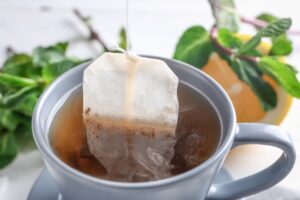
Herbal teas are another grocery item with a high markup, especially specialty and organic brands. Buying loose-leaf teas or larger, value-sized packages can cut costs. Additionally, consider blending your own teas using bulk herbs and spices for a more personalized and cost-effective option.
9. Fresh Herbs
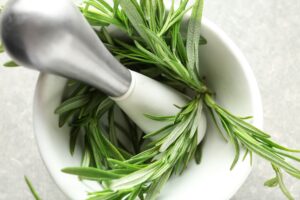
While fresh herbs add a significant flavor boost to dishes, they can be expensive and often go to waste due to their short shelf life. Growing herbs in a small kitchen garden or on a windowsill is a fun and easy alternative. This not only saves money but ensures you always have fresh herbs on hand.
10. Nut Butters
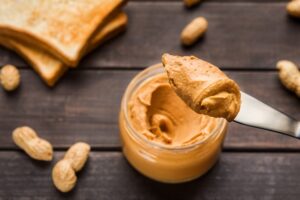
Nut butters are delicious and nutritious but can be pricey, particularly the organic or specialty types. Making your own nut butter at home with a food processor allows for customization in terms of added ingredients and texture, and can be more cost-effective. Bulk nuts purchased during sales can be used for this purpose, providing further savings.
11. Organic Produce
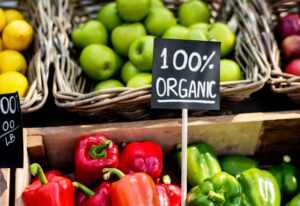
While organic produce is beneficial for health and the environment, it can also be double the price of conventional counterparts. To save money, prioritize your organic purchases using the Environmental Working Group’s “Dirty Dozen” list to buy the most pesticide-heavy fruits and vegetables organically while opting for non-organic for the “Clean Fifteen.”
12. Exotic or Out-of-Season Produce
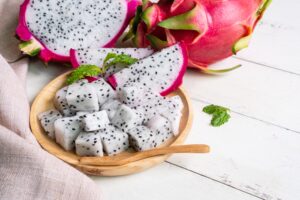
Exotic and out-of-season produce can significantly bump up your grocery bill. These items have often traveled long distances, adding to their cost. Opting for seasonal, locally sourced produce not only supports local farmers but also costs less. Plus, local produce is often fresher and packed with more nutrients.
Save Money at Any Grocery Store by Shopping Wisely

Being mindful of what you put in your cart at the grocery store is crucial for keeping your spending in check. By avoiding certain high-cost items and opting for more economical alternatives, you can significantly reduce your monthly grocery bill. Remember, every little bit adds up, and with these smart shopping tips, you can enjoy a full pantry without emptying your wallet.
Read More:
Financial Freedom Through Foliage: 8 Plants That Can Slash Your Grocery Bills
9 Buffet Foods You Should Skip (and Why)
Catherine is a tech-savvy writer who has focused on the personal finance space for more than eight years. She has a Bachelor’s in Information Technology and enjoys showcasing how tech can simplify everyday personal finance tasks like budgeting, spending tracking, and planning for the future. Additionally, she’s explored the ins and outs of the world of side hustles and loves to share what she’s learned along the way. When she’s not working, you can find her relaxing at home in the Pacific Northwest with her two cats or enjoying a cup of coffee at her neighborhood cafe.
Leave a Reply